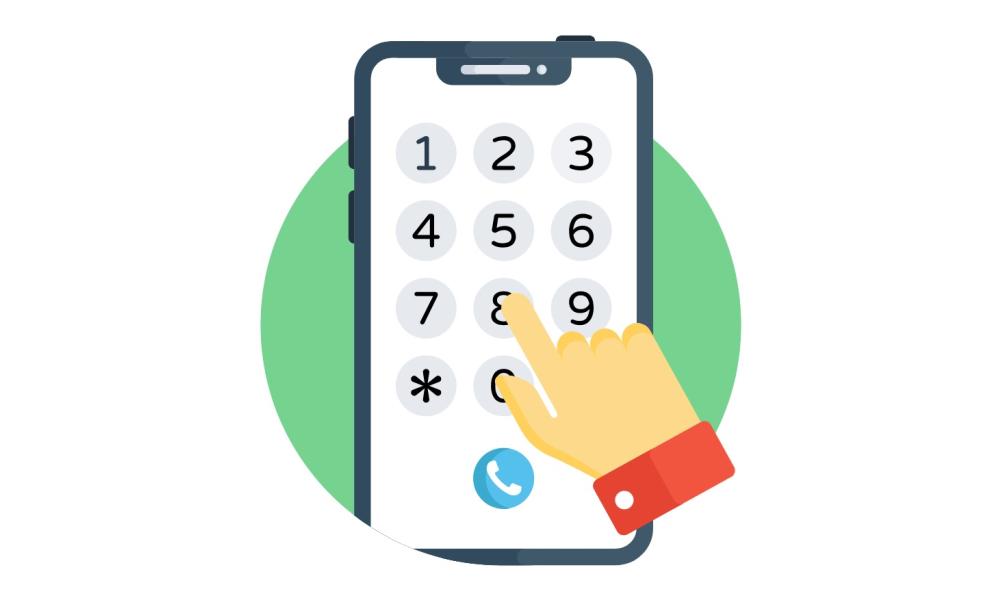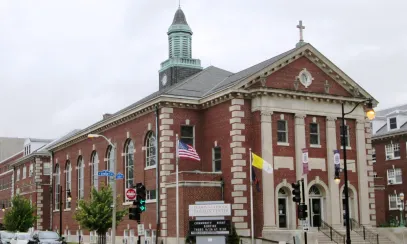
Help is Just Three Digits Away
September 4-10, 2022, was National Suicide Prevention Week and September is generally recognized as Suicide Prevention Month.
September 4-10, 2022, was National Suicide Prevention Week and September is generally recognized as Suicide Prevention Month.
September 11, 2022 | Have you ever had a mental health crisis in your family? Has a friend ever acted strangely, and you feared they might hurt themselves?
We've all had times where we have wondered what to do and where to turn. We don't want to overreact, but we feel helpless. Or we ourselves may feel helpless, or hopeless.
What do you do? Who do you call? Who do you text?
Since July 16, you can call the nationwide Suicide and Crisis Lifeline at "988." Three digits on your phone connect you with help.
The National Suicide Hotline Designation Act, signed in 2020, authorized "988" as a new three-digit number for suicide and mental health crises. It was a joint effort of the U.S. Department of Health and Human Services, Federal Communications Commission and the Department of Veterans Affairs.
All telephone service and text providers in the U.S. and the five major U.S. territories have activated the lifeline. The "988" number also links with the Veterans Crisis Line. The 10-digit National Suicide Prevention Lifeline 1-800-273-TALK (8255) will continue to be operational.
According to the National Alliance on Mental Illness (NAMI), when someone calls 988, they reach trained crisis counselors who will "listen to the caller, understand how their problem is affecting them, provide support and share resources, as needed." The agency said counselors will be able to help 80% of callers in the first call.
According to the Substance Abuse and Mental Health Services Administration, the lifeline is funded by a $105 million grant to states and territories, provided by the American Rescue Plan, "to improve response rates, increase capacity to meet future demand and ensure calls initiated in their states or territories are first routed to local, regional or state crisis call centers."
Mental health is a crisis in our country. On Dec. 6, 2021, the U.S. Surgeon General, Dr. Vivek Murthy, issued an advisory, "Protecting Youth Mental Health." In it, he wrote,
"Recent national surveys of young people have shown alarming increases in the prevalence of certain mental health challenges -- in 2019, one in three high school students and half of female students reported persistent feelings of sadness or hopelessness, an overall increase of 40% from 2009.
According to Mental Health America (mhanational.org), 19.86% of U.S. adults experienced a mental illness in 2019. And the National Academies of Sciences, in a Jan. 31, 2018, report, noted that, "Overall, 41% of veterans were found to have a potential need for mental health care."
Locally, Catholic Charities of the Diocese of Green Bay, has seen "a rise, in all of our offices," of people seeking help, according to Celia Gardner, manager of counseling and treatment services. This includes adolescents with anxiety and depression as well as "a lot more couples in marital or relational conflict."
The COVID-19 pandemic only increased problems, from loneliness to isolation, to fears about the future.
Dominican Sister Donna Markham, a clinical psychologist and president/CEO of Catholic Charities USA, told Congress May 10 that the pandemic "has exacerbated mental and behavioral health concerns in this country. We need swift and targeted action in order to meet the growing needs from this health crisis."
Awareness of each other is one way to meet those growing needs and be part of the solution.
"It is not just an issue that mental health professionals or the church have to deal with," said Karmen Lemke, director of Catholic Charities of the Diocese of Green Bay Catholic Charities director for the diocese, "but the whole society is embracing this. ... We have to all own this together."
Calling 988 for yourself, a loved one or a friend can make all the difference. Calling 988 today might prevent a loved one from calling 911 tomorrow.



